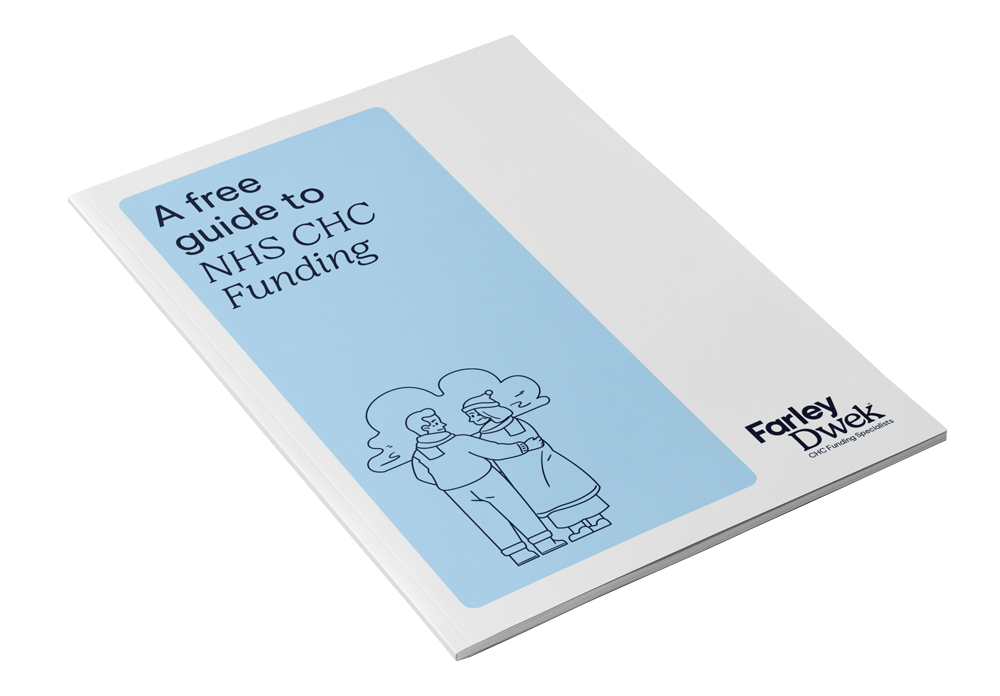Planning For Future Care Home Fees
If your relative has capital above the maximum threshold of £23,250 they may want to consider effective legal ways to mitigate their liability in order to avoid paying care fees and nursing home costs in the future.
There are a number of ways your relative can effectively dispose of capital without breaching the Local Authority guidelines, including:
- Setting up a Trust
- Repaying legitimate debts
- Producing receipts for legitimate expenditure
- Purchasing an Investment Bond with Life Cover (depending on the circumstances and timing of the investment)
However, the Local Authority has the right to scrutinise any arrangements which it considers may have caused the deprivation of capital – i.e. avoiding care and nursing home costs – as no arrangement is guaranteed to prevent the Deprivation of Capital Rules being applied.

Trusts and Social Care
Many people want to ensure that the wealth they have accumulated over their lifetime passes to their chosen beneficiaries and that they are not taxed either on their death or during their lifetime by being forced to pay for their care.
It is therefore important when looking at your Will and Lasting Powers of Attorney to also consider your wider estate and asset protection planning strategy.
One of the difficulties with asset protection is that the Local Authority can view these arrangements as deliberate deprivation of capital.
This anti-avoidance measure in the law enables some gifts or arrangements to be simply ignored by the Local Authority and even set aside by the court. Not only are these measure subject to change from time to time, but it is also unclear how far the authorities will go to pursue contributions that they believe to be owing to them in individual cases. It is very much dependent upon the particular Local Authority, and in all likelihood, their financial position at the time.
A Trust is a relationship which is recognised and enforceable in court. Its details are contained in a Trust Deed, which is rather like a rule book.
A Trust has its own bank account, assets and tax reference. When a Trust is established, it is usually registered with the HM Revenue & Customs. It pays income tax, inheritance tax and capital gains tax.
A Trust is governed by trustees. They look after the property, deciding what will happen to it on behalf of named beneficiaries. There must be a minimum of two trustees and a maximum of four trustees. It is not advisable for the settlor (the person making the gift into the Trust) to be a trustee.
Responsibilities of Trustees
The trustees must always act in the best interest of the beneficiaries. They have very wide powers to act in this way and can take advice in this respect. They have wide powers to invest money, insure property, lease and mortgage it.
The trustees are required to keep Trust records and hold trustee meetings on an annual basis. They must also make sure that they carry out the terms of the Trust and not go beyond their powers. A trustee must never profit from their role as a trustee, and must act impartially and fairly between the beneficiaries entitled to benefit from the Trust, now and in the future.
Notwithstanding this threat from the Local Authority, protecting your assets and the inheritance for your loved ones is perfectly legitimate, and there are a number of options available.
Seek professional advice that is tailored to your individual circumstances rather than a generic ‘off the shelf’ product.
These options can include:
- Gifting (either in whole or in part)
- Repaying debts or compensating those who provide you with care
- Setting up a trust
- Purchasing an Investment Bond with Live Cover
Outright Gifts (either whole or in part)
There are a number of reasons why you may wish to make an outright gift:
1. A desire to see the gift being enjoyed by the recipient during your lifetime, rather than under the terms of your Will post-death. Although, where this is the family home this can be somewhat tricky.
2. You may feel it appropriate that certain family members receive a gift of value from you.
3. You may wish to recognise the contribution which a family member has made to your property, your lifestyle and your personal choices.
4. Avoiding family issues or disputes.
5. Avoidance of delays following your death. A Grant of Probate would be required if you retained the property in your sole name at death. You may not need a Grant of Probate if you gift the property which would also reduce the fees payable upon your death.
6. You may want to pass the burden of owning a property to the next generation. For example, they may agree to then keep the property maintained, repaired and insured at their own expense.
As your home is likely to be your only, or most valuable asset, it is important to be cautious about making this decision. Transferring the property outright can leave you financially insecure even if the recipient of the gift does not intend it. For example:
1. If the recipient has financial problems or becomes bankrupt, then your property may be lost to creditors.
2. If the recipient gets divorced, then your home will become part of their assets in determining the divorce settlement.
3. With gifts requiring the recipient to take control of the property in respect of repair, maintenance, insurance etc., then it is important that the recipient is aware of and accepts that responsibility.
4. If the family falls out.
5. If the recipient dies, then the asset will pass under the terms of their Will, or if they have no Will, under the Rules of Intestacy. This could mean that a daughter-in-law or son-in-law and the grandchildren could benefit. This, of course, could be addressed by ensuring that they had a suitable clause in their Will, but there is no way of compelling them to do so.
Mitigating these risks – Declaration of Trust
It is possible to mitigate some of these risks by giving away a share in your property, rather than the whole.
Your property would normally be transferred into the joint names of you and your chosen family members, and a separate document called a Declaration of Trust is prepared. This divides the beneficial interests in your property and assigns to each person an interest in your property.
This option can be used as a method of formally recognising the contribution which a family member or other person has made to the property and to your lifestyle or personal choices. This work can be, for example, helping you with your shopping, finances, paperwork, paying your bills and generally enabling you to remain living independent for as long as possible.
It is important that this is tailored to your family circumstances to mitigate any challenge.
Gifts to Trusts
Instead of transferring your assets outright you can consider making a gift to a family trust (either discretionary or life interest trust).
Firstly, it is important to remember that if you enter residential care within 6 months of making the gift, the Local Authority can send the bill for care fees to the recipient of the gift or the trustees if you have created a Trust.
After this time, the Local Authority can treat you as still owning the asset even if it has already been given away. This can affect your entitlement to Local Authority financial assistance. If the recipient of your gift is not in a position to assist, or will not assist in the payment of fees, this creates an untenable position for you.
There is no time limit in which a Local Authority can treat you as owning that asset which you have given away – the gift may have occurred many years before you enter care and there may still be a reasonable link between the transaction and your subsequent claim for care. Of course, if you are in reasonable health now, then over time, the risk will fade. Each case must be assessed on its own merits.
In addition to the deliberate deprivation rules, a Local Authority can sue for debts and they could also invoke the Bankruptcy and Insolvency Rules to set aside transactions. It is generally thought that very few Local Authorities would be willing to attempt a bankruptcy because of the political/social implications and pure bad feeling generated, but it is important to address this possibility.
There can be no guarantees that there is a fool-proof way of avoiding the value of the home being taken into account in means-testing.
Depending on the terms of the Trust, you may be one of the beneficiaries and you would continue to benefit from the asset during your lifetime. On your death, the Trust will end and the property will then pass to the recipient that you specify. The terms of the Trust can be tailored to your own individual circumstances and could be made flexible for future generations.
If the asset is your home, then during your lifetime you could live in the property; or if your home is sold, the proceeds can be used to purchase another property for you. Alternatively, the proceeds can be invested to generate an income for you.
You need to be aware that having a property in a Trust is not the same as having it in your own name. The trustees must be free to make decisions about the property, and if you are seen as interfering, the Trust may be declared a sham.
1. Matters of affection and moral obligations can be fulfilled by creating a family Trust.
2. A family Trust can formally recognise the contribution which a family member or other person has made to the property and to your lifestyle or personal choices.
3. Forming the Trust can be used to promote family harmony and avoid problems on death. You can make the Trust flexible so that your property remains within the Trust and can be used to provide for the family after your death.
4. The property in a family Trust can be sold without a Grant of Probate and this avoids delays on death and avoids paying the court fee.
5. Peace of mind – being free of property ownership, by passing on the responsibilities and financial burdens to the trustees.
6. You can retain a place to live for as long as you wish, and you could also retain an income should the property be sold or rented out.
7. The trustees do not own the property in the Trust fund outright. This is an important distinction between using a Trust and an outright gift. The property does not belong to family members until your own death, and is therefore not available to the recipient’s creditors or other third party claimants.
1. Where a property has been transferred to a family Trust, the trustees decide what will happen with that property. Although they must operate within the terms of the Trust, once a property has been placed in a Trust, there is an element of loss of control.
2. If you wish to raise a loan on your property, then you will not be able to achieve this.
3. You may lose valuable tax reliefs upon your death.
4. It is important that the trustees have cash with which to maintain your property to avoid the Trust being treated as a sham.
5. Depending upon the value of your home, there may be inheritance tax to pay.



